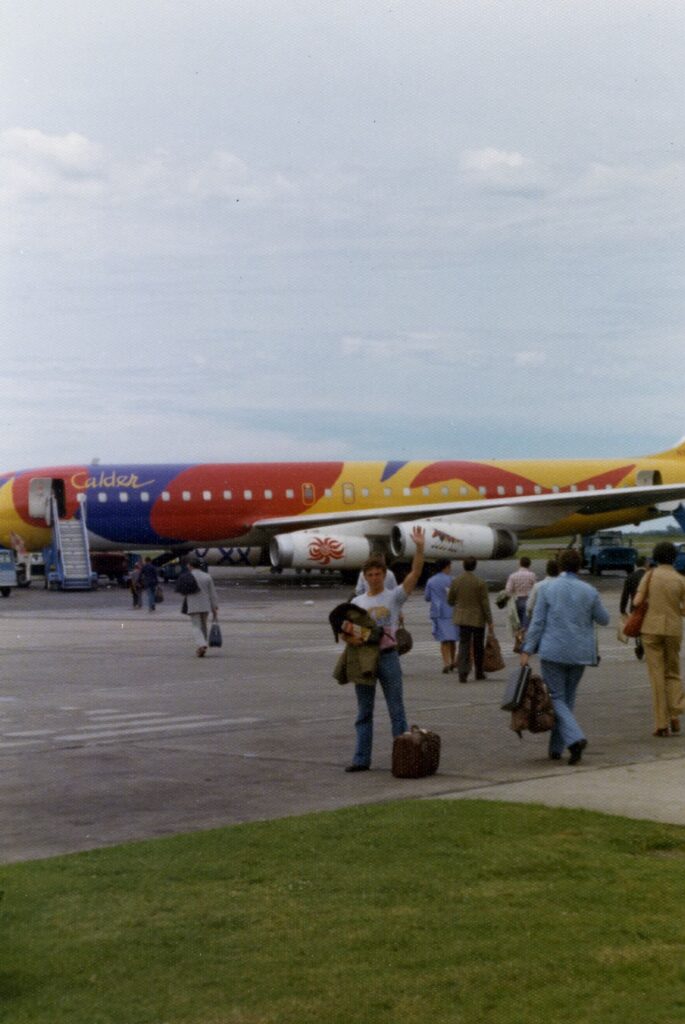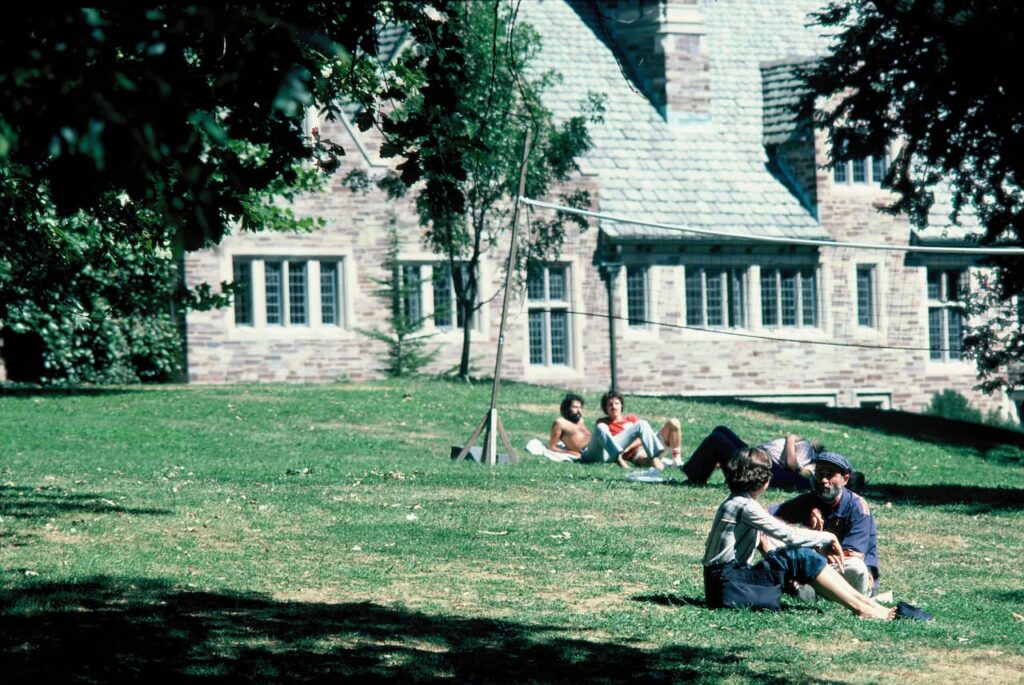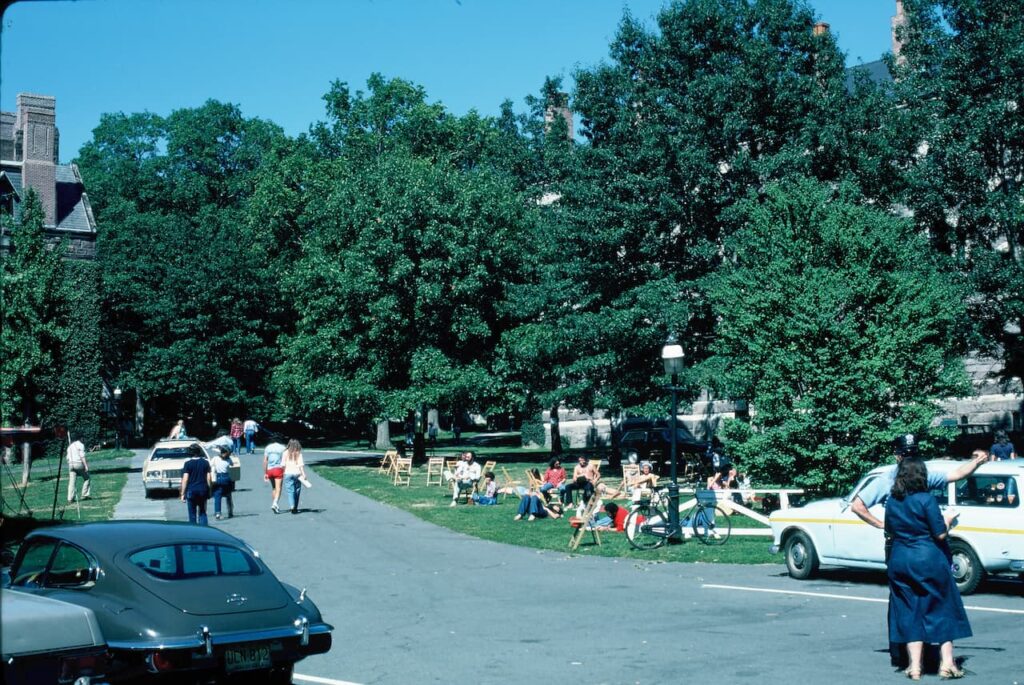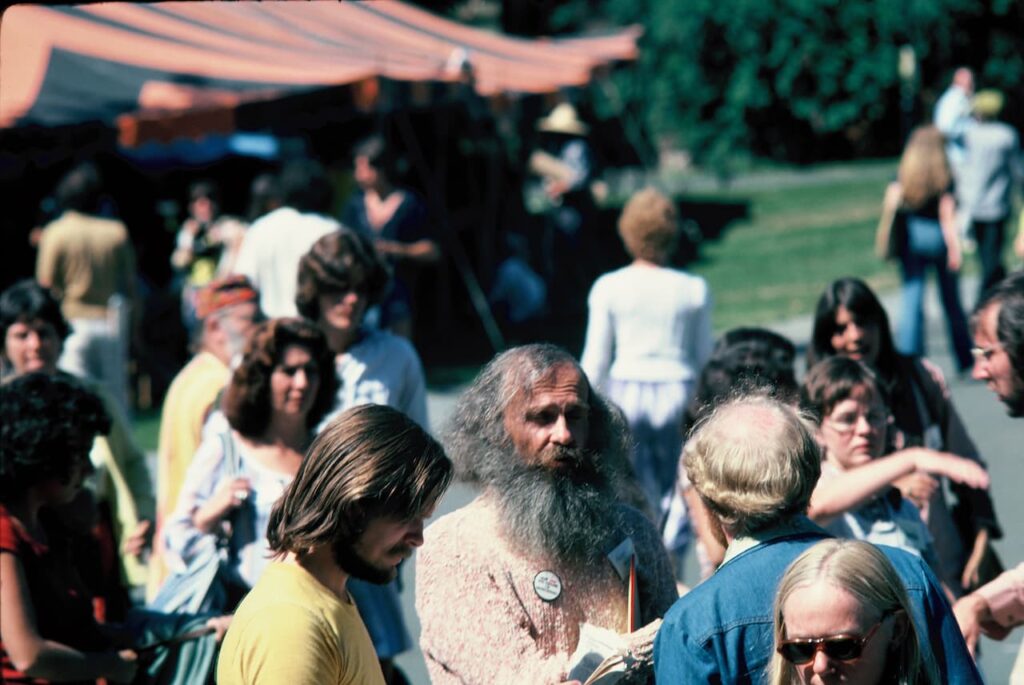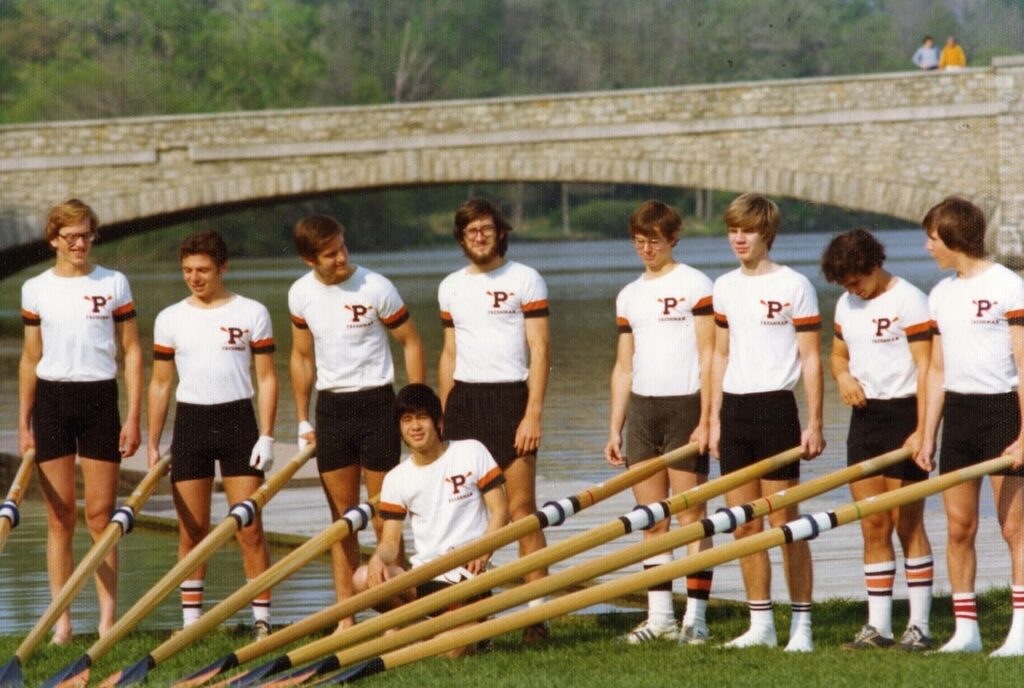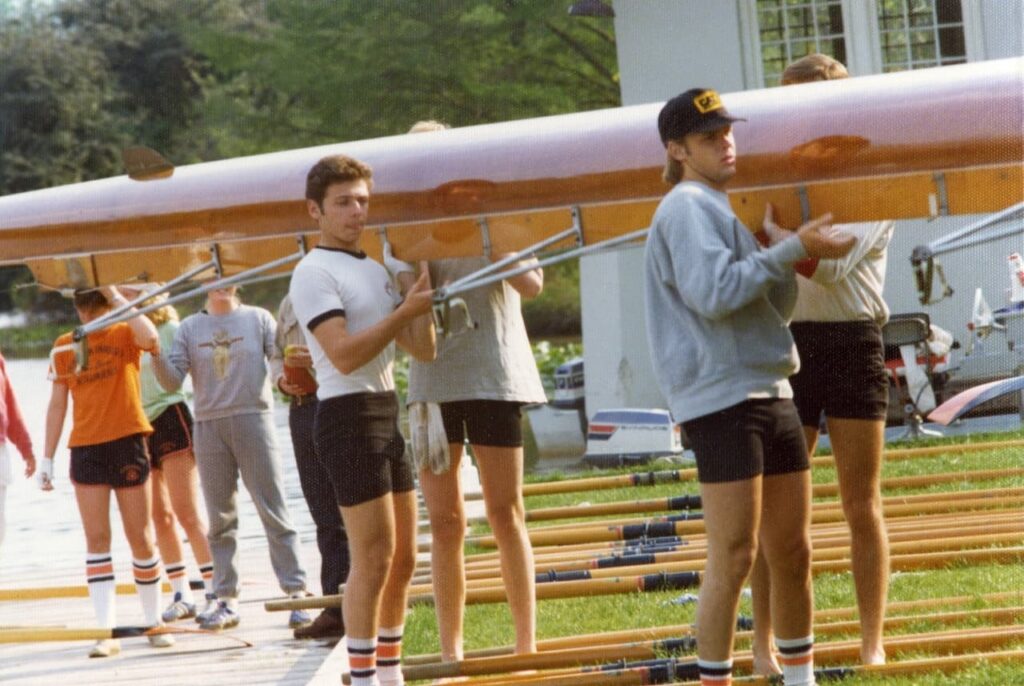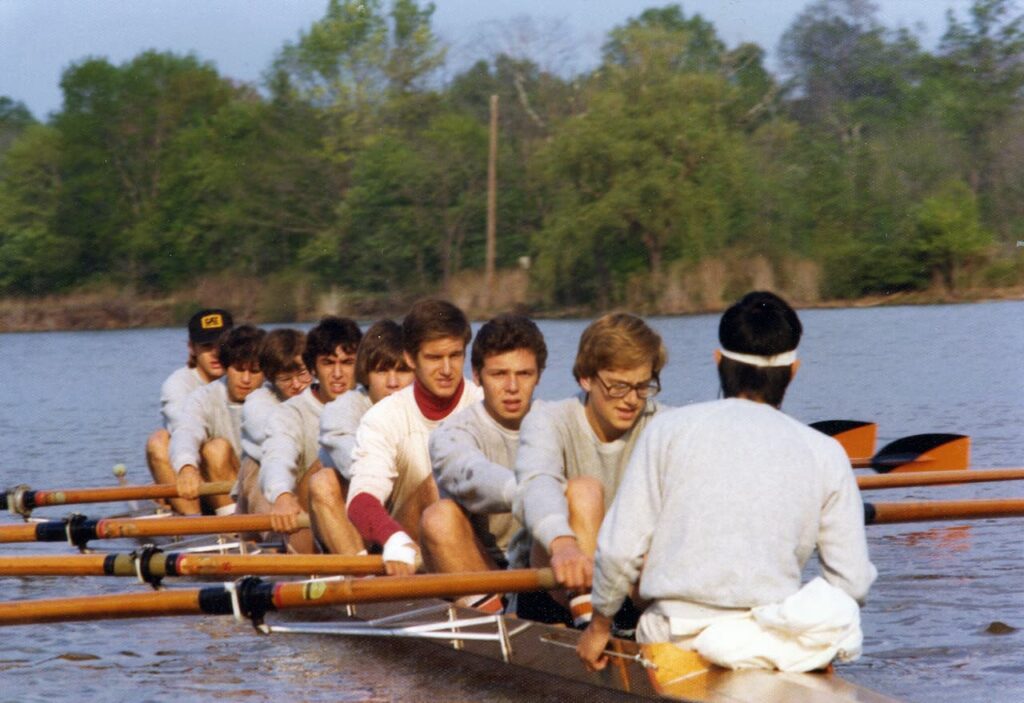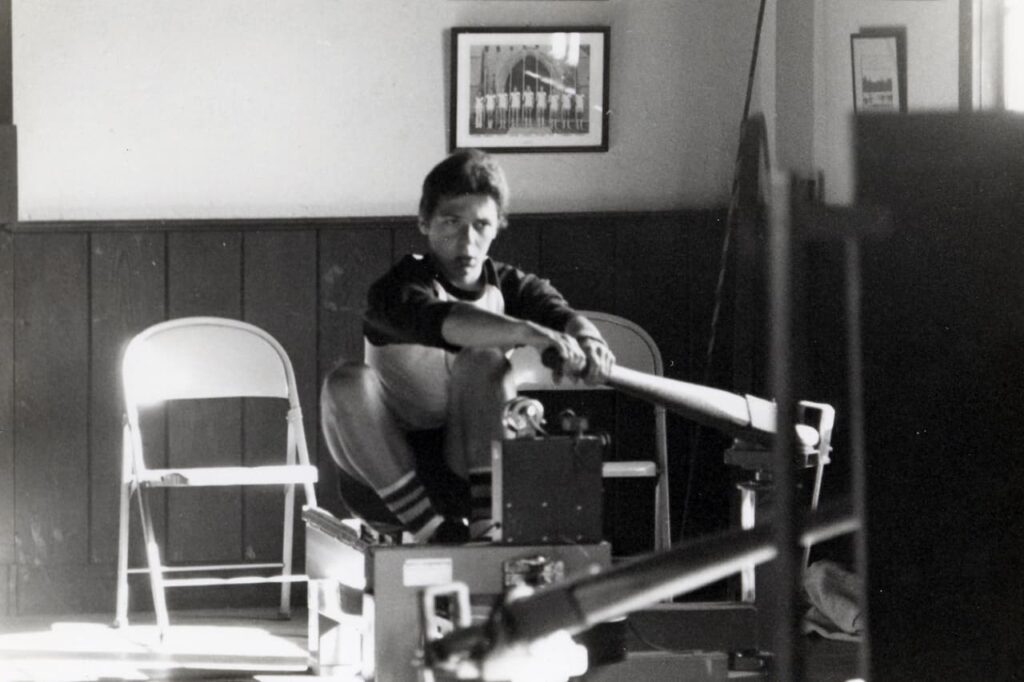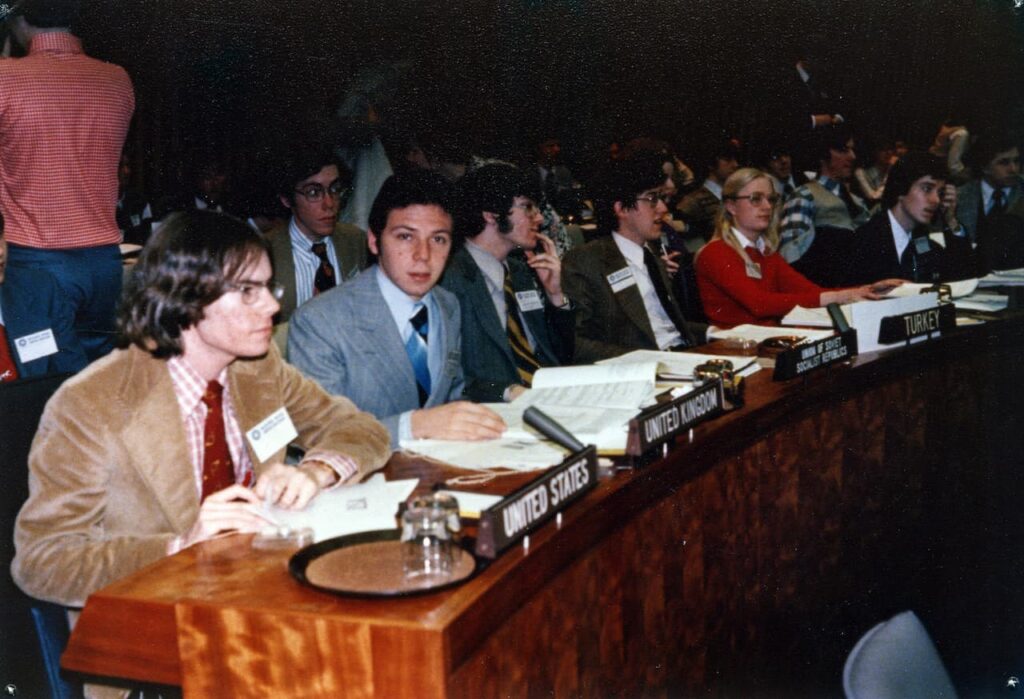I left Buenos Aires for Princeton at the end of August, 1976. It was a good time to be in the US. The Vietnam war had finished the year before. The economy had rebounded from the 1973 oil crisis, and there was a general sense of optimism. A few months after my arrival, Jimmy Carter was elected President. He put the accent on human rights, which I loved. Internationally, Franco had died in November of the previous year and Spain was transitioning towards democracy. And Mao died a few days after I arrived on the campus, signalling the end of the Cultural Revolution and ushering in a time of profound change in China.
The ambiance on campus was relaxed and carefree. Political disputes between Democrats and Republicans, which have become so all-pervasive in American life today, were practically absent in those days. From my perspective, both parties looked more or less the same—the Democrats were a bit more in favour of racial integration and social support for the masses, while the Republicans favoured a somewhat smaller government and were more business-friendly. I can’t remember any political campaigning on campus for the presidential election in November of 1976, and I don’t think that many of my fellow students voted. The US institutions were very stable and people had other concerns.
I didn’t have a strategic view of my academic path at Princeton; I had no clue what I would be doing afterwards, so I chose my courses on the basis of what interested me, with the consequence that most of them were in the humanities. I shied away from courses that were too difficult or too time-consuming. As always, my focus was on a healthy work/life balance—I worked intensively in the morning, had a few classes in the afternoon, and made sure that my evenings were free.
I had met the rowing coach during my visit earlier in the year, and as soon as I was on the campus, he came after me to enlist me in the lightweight crew team. I joined the team, but my rowing experience would last for only my freshman year—it was just too time-consuming and too hard, with outdoor training in the middle of the icy winter and, especially, weekly weigh-ins before each competition, where I was assigned a weight (145 lbs), which I had to match every week or I was not allowed to compete. This meant that from Tuesday to Friday (when the weigh-ins took place), I didn’t eat and in the last few hours, I didn’t drink any water, to ensure that my weight was correct. Meanwhile, I was training every day of the week. It was very hard and, in hindsight, quite unhealthy, since on Saturday mornings before each competition, I would fill my stomach with eggs, pancakes and sausages, to ensure that I would be strong enough for the competition in the afternoon.
I loved my courses at Princeton. In my mind stayed ‘The Historical Jesus’, ‘Baroque Art’, ‘The Coming of the Industrial Revolution’ and ‘Contemporary Anthropology’, which led to a lifelong interest in these subjects. The way artists in the baroque period approached painting, with some of the action taking place outside the canvas, as well as their use of light, would considerably help me understand the work presented to me by creative teams during my advertising years.
I had no difficulties writing papers, but I had an unorthodox approach: it would take me a long time to start, but when I finally did, I would write continuously and finish in one or two sessions. To the despair of my professors, I was never able to write an outline. Then as now, my arguments appeared on paper as I wrote, and it was not possible for me to know in advance what my conclusions would be. I might have not known at the outset where I was heading, but the advantage of my papers was that they were always very fluid, and my arguments unfolded seamlessly. This is still the way I write today. And then, as now, I always finished long before the due date—I’ve never been able to do meaningful work with a gun to my head. In order to produce work, I’ve always needed the psychological assurance of knowing that I had plenty of time.
Exams at Princeton were no problem for me either, except for those involving multiple-choice questions. Because I had grown up in an environment where standardised questions were unheard of, I couldn’t deal with them. At every question I would wonder under which circumstances each answer might have been possible, which meant that I was unable to finish on time. The only bad mark I got during my four years at Princeton was in my first semester, in the introductory Economics course, because the exams were multiple-choice. From then on, I made sure that I took no course that involved this kind of exam.
Other than coursework, my days were filled with attendance to a large variety of conferences, presentations and membership of different organisations. I became the president of the Whig Cliosophic Society (Whig-Clio), the oldest American debating society. I was also strongly involved in Model United Nations, which reproduced the workings of the UN. I chose this activity in part because it allowed for frequent travel to other universities. During my senior year, I hosted in Princeton a national conference, in which I played the role of the UN Secretary General. Because of Princeton’s proximity to the UN Headquarters in New York, I hosted on the campus several high-ranking UN officers, including Sir Anthony Parsons, the UK representative to the UN, and Gamani Corea, the Secretary-General of UNCTAD.
Model UN was good for me in the sense that it allowed me to see where my strengths lay—I was good at organising teams, a good speaker and a persuasive negotiator. But I didn’t like protocol and long meetings bored me to death. I was very happy to hear the opinions of others and integrate them into my thinking, but when it came down to making decisions, I didn’t like half-baked solutions and I wanted to make decisions by myself. It became clear to me that any future career options would have to build on these insights. At some point during my adolescence I had contemplated the idea of becoming a diplomat. I now dropped the idea.
A memorable day for me took place during my Junior Year. As President of Whig-Clio, I invited Joe Biden, who in 1972 at age 30 had become the youngest US Senator. Now into his second term, he joined us for a presentation and a subsequent debate on a Saturday morning. After his speech, I invited him to lunch and we spoke extensively about the nuclear arms treaty with the Soviet Union, at the time a very hot topic in the US. After lunch, he asked whether he could see the campus and, unexpectedly for me, I spent the rest of the afternoon with him.
I would have never thought at the time that Joe one day would become the US President. He was totally low-key, a very intelligent and affable man, who preferred to listen rather than to talk. He was open to suggestions and treated everyone with incredible respect, starting with me. He asked about my opinion on many matters of foreign policy and listened very attentively. I couldn’t see how he would succeed in the cut-throat environment of American politics. But he did, and I’m really delighted for him and for the US. After our day together, he sent me a very charming personal letter, which I have cherished and kept.
During my first year at Princeton, Paul came to see me and after visiting the campus, asked me to join him in New York. ‘You need to stop by the bank, I need you to sign some papers,’ he said. So, one afternoon in the spring of 1977, I showed up at Bank of America. My father was already there, and I was asked to wait in the room next to where the meeting would take place. The door to the banker’s office was sufficiently open for me to hear what was being said. ‘Pablo,’ (as my father was known then), said the banker, ‘I’ve known you for many years. I know that you have total confidence in your son. But please think about what you’re about to do one more time. After Pedro signs these documents, he can withdraw any amount from your account. He can just take whatever is there, and there is nothing that I can do about it. He can even close the account. I know you think highly of him, but remember that he’s not even 20 years old. He might get involved with drugs, he might fall into the hands of unworthy people, why don’t we find a solution that doesn’t involve so much risk for you?’ Then I heard my father say: ‘Thank you, I know that you’re trying to protect me, but I have confidence in Pedro. I know that he would never let me down.’ Then the door opened and I was asked to sign a few documents. The banker explained to me that I now had full signature on all of my father’s accounts.
My father didn’t comment on the meeting and I said nothing. It was decades later that I confessed to Paul that I had overheard the conversation he had had before I arrived. I told him what an impact his words to the banker had had on me, how deeply I was had been touched by such an incredible sign of trust. He looked surprised and just said: ‘But I always knew I could trust you, what that banker said was irrelevant to me. If you can’t trust your own children, then who can you trust?’ Paul’s words and his attitude have guided me all my life. I have always trusted my children blindly.
The River
Pedro Simko

The River
Pedro Simko

